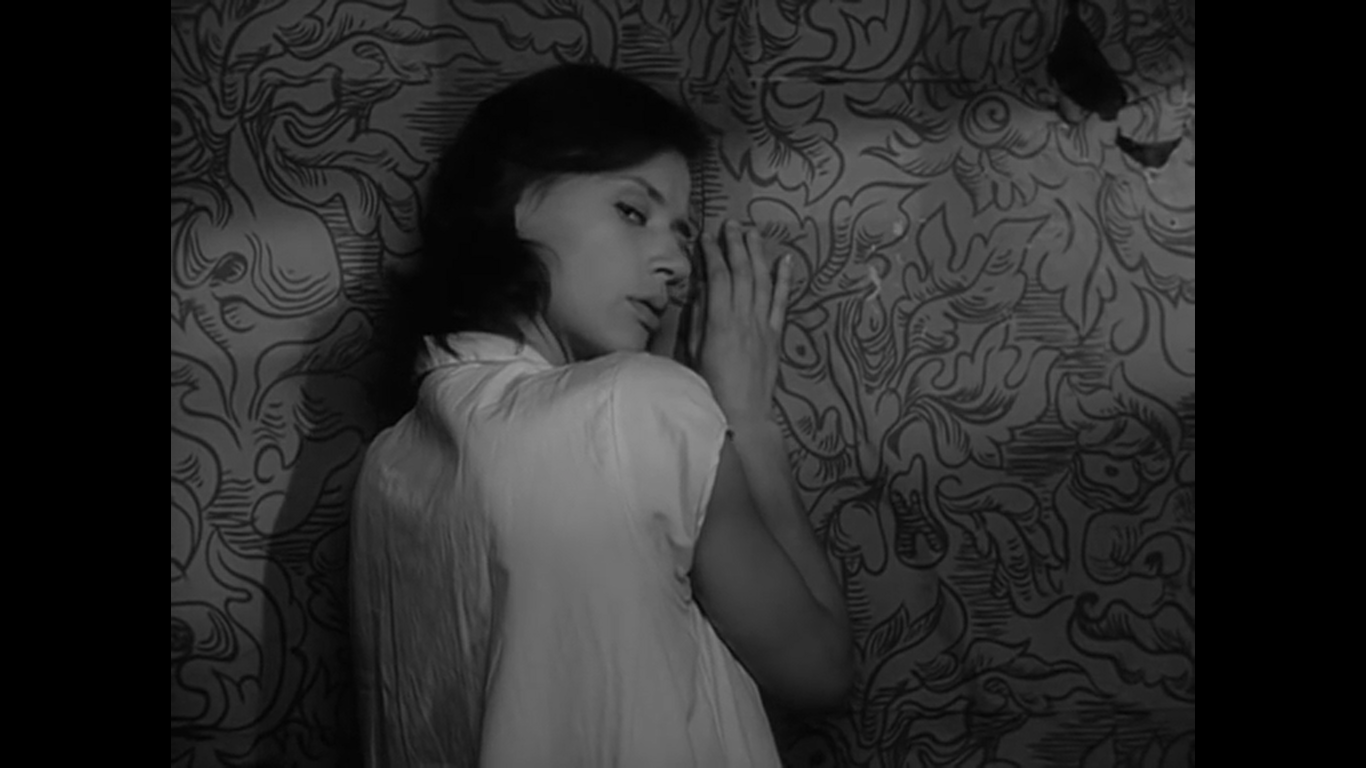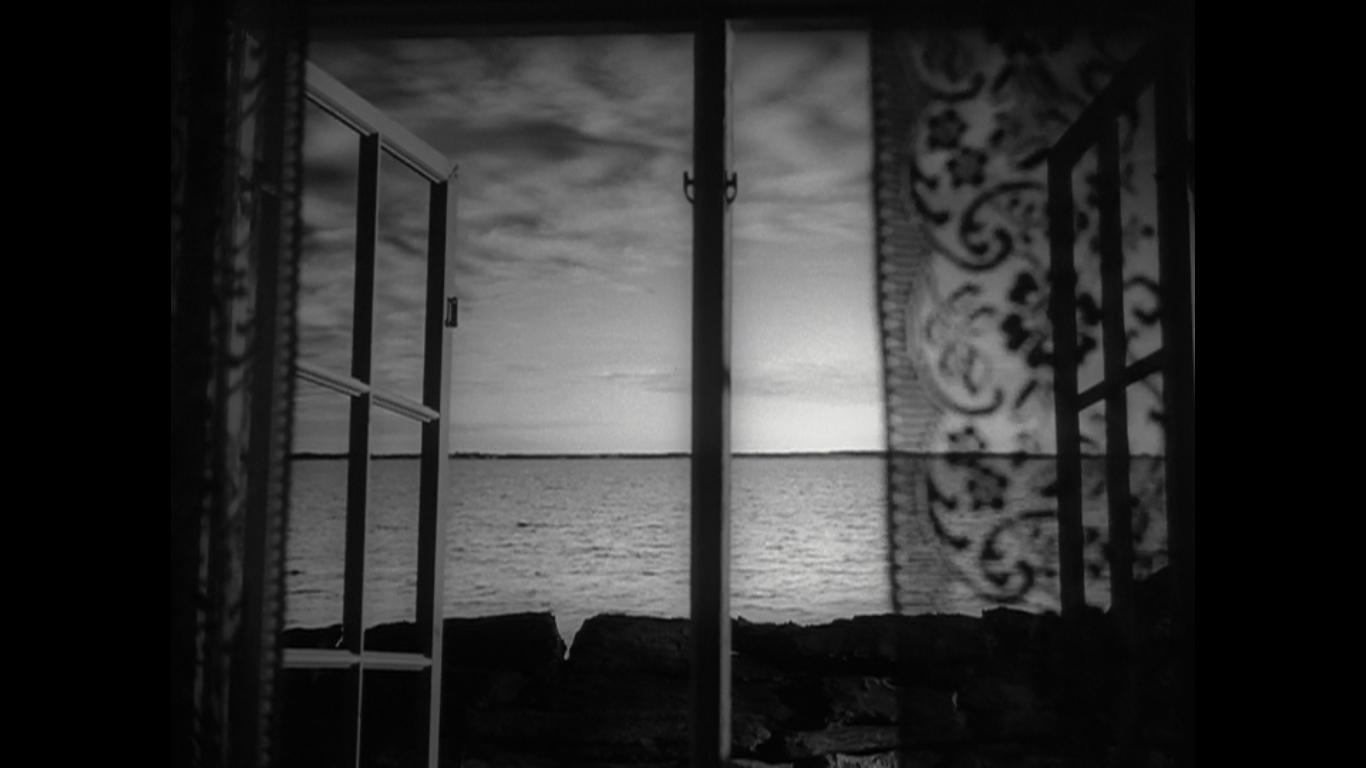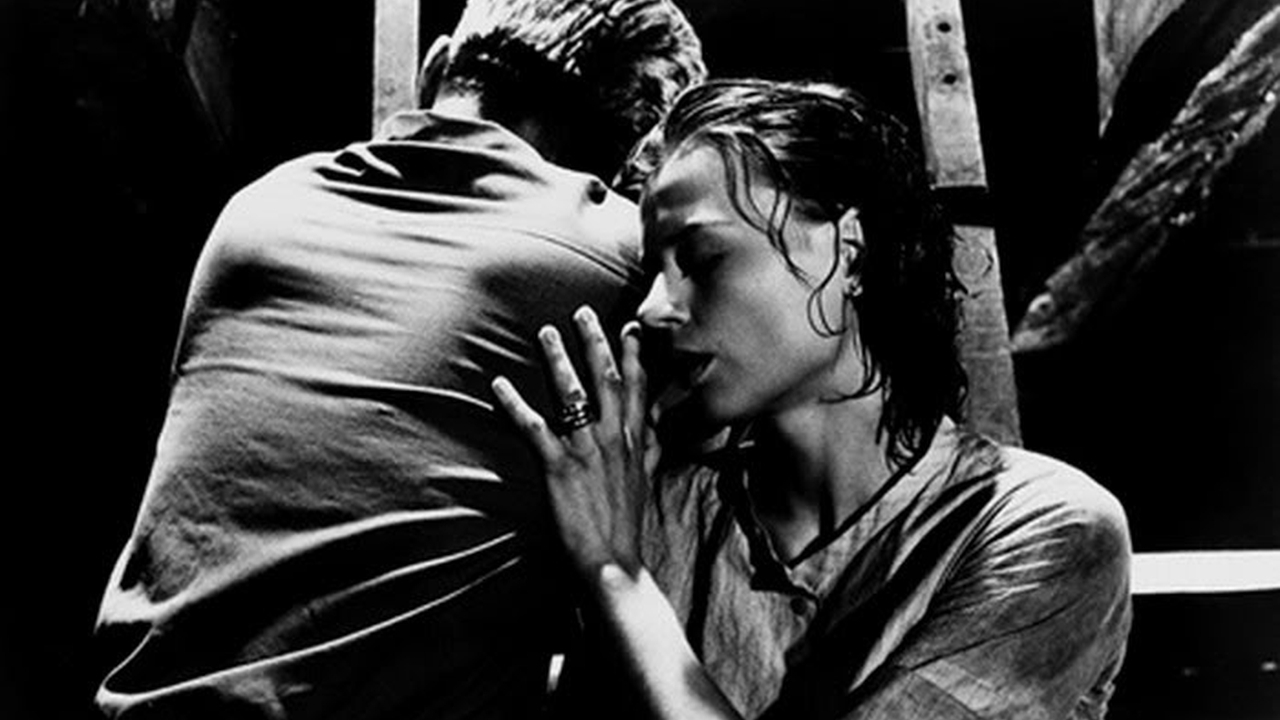We can plot the Great Movies You’re Supposed To Have Seen Canon on a grid, something like the omnipresent Political Compass. One axis is fast vs slow, and the other is positivity-oriented and optimistic vs. mopey depress-os.
A lot of the mutual lack of understanding that sometimes happens when I talk to my fellow film dorks online comes from the oddities of my personal artistic history that have left me to mostly enjoy the slow depress-o corner of the canon map, that corner which has become for many people about as pleasant a place to visit as the dentist’s.
It would take too long and interest no one to try to map out why I landed in that spot (it’s probably partially just the sociological factor of not having any “serious” film lovers in my life who I felt were imposing the moldy and the old onto me, and partially my deep-seated distrust of positivity as an abstract good). But it has led me to defending a number of filmmakers who would have been derided more as Dead White Males if they had had the good sense to die when they were outdated.
While granting even the smallest iota of credibility to dogshit books like The Closing of the American Mind is the last thing I ever want to do — I’ve met plenty of “they don’t teach the classics enough!” types in my college career, and most seem to defend the canon mostly to save themselves the trouble of becoming familiar with it themselves — I do think it’s amusing that when it comes to pruning the (obviously, completely over-represented) great dead white men artists, it always happens to be the ones who, like Ingmar Bergman, happen to be seen as difficult watches/reads/listens who get the chop, and not any who are seen as more fun or more upbeat.
This isn’t necessarily a criticism; it is just a bias that often goes unmentioned. There is nothing wrong with having values you cling to. But I would suggest that, when it comes to figures like my beloved Bergman, it is worth asking whether those implicit judgments are not perhaps unfair.
 Knocking Bergman for being “out of touch” is no new game. I open Birgitta Steene’s frighteningly complete Ingmar Bergman: A Reference Guide to a random page in its secondary bibliography and find two articles on the same page, from 1995: Tom Charity writing in Time Out an article that “[n]otes on the unfashionable status of Ingmar Bergman and the outdated philosophical concerns of his films, making an exception for Smiles of a Summer Night” — that is, one of his very few comedies — and Kathleen Murphy writing in Film Comment about “Bergman as ‘a Protestant sensualist who can never rise to whole-hearted Rabelaisian physicality; there is always a worm of guilt or disgust or indignity in the apple’. If his films survive it is because his ‘dollhouse is alive with intensely experienced images and scenes.’”
Knocking Bergman for being “out of touch” is no new game. I open Birgitta Steene’s frighteningly complete Ingmar Bergman: A Reference Guide to a random page in its secondary bibliography and find two articles on the same page, from 1995: Tom Charity writing in Time Out an article that “[n]otes on the unfashionable status of Ingmar Bergman and the outdated philosophical concerns of his films, making an exception for Smiles of a Summer Night” — that is, one of his very few comedies — and Kathleen Murphy writing in Film Comment about “Bergman as ‘a Protestant sensualist who can never rise to whole-hearted Rabelaisian physicality; there is always a worm of guilt or disgust or indignity in the apple’. If his films survive it is because his ‘dollhouse is alive with intensely experienced images and scenes.’”
I don’t have access to Murphy’s full article, but presumably she explains why it’s necessary for Bergman to have a “Rabelasian physicality,” as if all art must be informed by a 16th century satirist (or, more accurately, what hay a very clever 20th century critic could make out of a 16th century satirist).
If Bergman has, as Charity (apparently) says, outdated philosophical concerns, he is nowhere more outdated than in what I have heard called his “silence of God trilogy”: Through a Glass Darkly, Winter Light, and The Silence.
Who now, I can hear asked in my head, is so mopey about the silence of God? Aren’t we supposed to be good atheists, untroubled by the lack of objective meaning, so thoroughly post-any-divine-figure that we can allow the trappings of metaphysical belief back into our lives in whatever form we want, motivated entirely by videos with titles like “Nihilistic Optimism” or “Optimistic Nihilism”?
Whether or not those are fair criticisms — I’d suggest that most people today are far less thoroughly atheistic than they think — they don’t apply, at the very least, to Through a Glass Darkly, as there is nothing silent about its God.
 The God of Through a Glass Darkly lives in a gash in a wall. This is the gash where Karin (Harriet Andersson) hears voices muttering, in a long, gorgeous, wordless sequence, and where she goes at the climax of the film, as her schizophrenia intensifies.
The God of Through a Glass Darkly lives in a gash in a wall. This is the gash where Karin (Harriet Andersson) hears voices muttering, in a long, gorgeous, wordless sequence, and where she goes at the climax of the film, as her schizophrenia intensifies.
There she hears God’s voice, telling her of his imminent arrival. In fact, it is only from the perspective of the male characters that surround her that God is silent; to her, God is anxiously, terrifyingly close. He is finally revealed to her, but as a spider, a sudden appearance so horrifying she runs away screaming.
It’s this arc I think of when I hear criticisms like Charity’s, that Bergman’s philosophical ideas are “out of date”. It is only by sticking with the perspectives of the men in the film, and, in particular, the supposedly mature adult men, that Bergman is subdued, cold, obsessed with questions no longer fashionable about the “death of God”.
But I would say if we let ourselves be drawn to the most vibrant characters in his films — in particular, in his women-centered films like Through a Glass Darkly — Bergman reveals himself as a filmmaker dealing more with anxiety than depression, with a tightness of the muscles rather than simple boredom. And that tightness and tension is always both placed within the specific confines of the family and other societal functions, making him politically relevant, and within the intellectual web that we are still dealing with.
 In that, I would suggest that the “difficult” corner of the canonical web can be just as relevant to the modern viewer than the “fun” corner. And I wonder if it is not a fear of confrontation with unpleasant but common realities that keeps some viewers away — whether it is sometimes too easy to use the entirely legitimate cause of diversifying art and not underrepresenting minority figures to avoid works that might be difficult to enjoy.
In that, I would suggest that the “difficult” corner of the canonical web can be just as relevant to the modern viewer than the “fun” corner. And I wonder if it is not a fear of confrontation with unpleasant but common realities that keeps some viewers away — whether it is sometimes too easy to use the entirely legitimate cause of diversifying art and not underrepresenting minority figures to avoid works that might be difficult to enjoy.
But it is that insistence on “enjoying” every moment of life, in maximizing one’s pleasure, that marks the dull, immature (or too-mature) figures in Bergman’s films, like Karin’s husband and father. It is that ability to experience that which is unknown and unknowable that marks its vibrant heroes, like Karin and her brother Minus.
I would suggest, in fact, that there are two kinds of viewers who are put off by Bergman and the similarly “out-of-date” depressing filmmakers. There are those who are truly are simply unable to risk being bored for 90 to 120 minutes, those closer to the men who surround Karin, those for whom all the depth in the world is truly silent; they can be safely written off.
But I think there are many viewers who, though they might borrow the language of the hedonistic maximizers doing pleasure calculus longhand, are simply afraid of the tension and the stress of films like Through a Glass Darkly, those who are not afraid of some pleasure missing but of something all too present, too close to them.
 To those people I can only say: I don’t know what baggage the “slow depress-o” corner of the art film canon might bring to you. But the fact that one might react that way to the work as a whole might mean that the work itself might be particularly well-suited to one. The same tension one feels hovering over a film that one Should Have Seen when flipping through Netflix is itself within many of these canonical films, in particular Bergman’s masterpieces.
To those people I can only say: I don’t know what baggage the “slow depress-o” corner of the art film canon might bring to you. But the fact that one might react that way to the work as a whole might mean that the work itself might be particularly well-suited to one. The same tension one feels hovering over a film that one Should Have Seen when flipping through Netflix is itself within many of these canonical films, in particular Bergman’s masterpieces.
Engaging in the works in question might — only might, of course — help name and uncover those exact anxieties. In the end, as much nonsense has been made out of Aristotle’s half-sentence on catharsis, something like it is very possible, and films like Through a Glass Darkly have given me years of comfort in confrontation and wrestling.
That is why I don’t feel like I can ever give up my outpost in one corner of the canon, even if others sometimes seem to be more popular and more pleasurable in the immediate.

